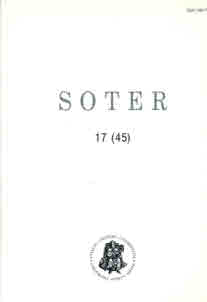Gyvenimo prasmės klausimas. Istorija ir dabartis
The Question of the Sense of Life: History and the Present
Author(s): Lilija GorbacevicaSubject(s): Christian Theology and Religion
Published by: Vytauto Didžiojo Universitetas
Keywords: gyvenimo prasmė; krikščioniška gyvenimo prasmė; aiškaus gyvenimo prasmės suvokimo nebuvimas; S. Kierkegaard. the sense of life; the Christian sense of life; the absence of the explicit sense of life; S. Kierkegaard.
Summary/Abstract: The author considers the history of the question of the sense of life from Renaissance to our time. The period of Renaissance saw certain changes in value priorities which spread in the society in the subsequent centuries. The process of formation and propagation of new values meant the establishment of new culture the central figure of which was the Man, not God. The process of formation and propagation of new values meant the establishment of new culture the central figure of which was the Man, not God. However, this process gives rise to the feeling of vulnerability, making people search for the new sense of life which can give a foothold to an individual life. European philosophers started an active search for the sense of life in the 16th-17th centuries. Influenced by the development of science, the European society becomes more and more convinced that the sense of life lies in the truth revealed in the process of cognition. The absolutization of reason found its maximum expression in Hegel’s philosophy. The reason builds up an algorithm of comprehending the truth, making a person submit to the necessity. So freedom, the central component of the sense of life in the New Age, becomes unreal. The views of the 19th century philosophers, such as A. Schopenhauer, S. Kierkegaard, F. Nietzsche, can be regarded as a reaction to the absolutization of reason in general and for an individual in particular. This period in philosophy is a period of searching for a different sense of life, in which reason would not play a leading role. To a maximum extent this thought is expressed in S. Kierkegaard’s works who maintained that the task of philosophy is to break away from rational thinking and to cross the line of the impossible in the search for the sense of life. The leading role in this search is played by personal interest in salvation, giving an eternal sense of life. S. Kierkegaard’s philosophy opens a new phase in the search for the sense of life, which, starting with the 20th century, is less and less limited by mundane experience and achievements of the reason.
Journal: SOTER: religijos mokslo žurnalas
- Issue Year: 44/2005
- Issue No: 16
- Page Range: 181-189
- Page Count: 9
- Language: English

